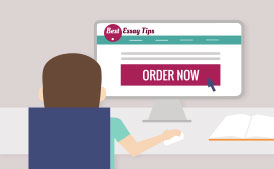 Do you have a lot of home jobs and it's not enough time?
Do you have a lot of home jobs and it's not enough time?  Just go to our website and order your papers from us!
Just go to our website and order your papers from us!  Get your finished paper within the specified time!
Get your finished paper within the specified time! Should American Be Capitalized?
What Is Capitalization?
Capitalization is writing the first letter of a word in uppercase, with the remaining letters in lowercase. It can change the meaning of a sentence. For example, red bull has a different meaning from Red Bull. That’s why it’s important for us to understand the rules.
At first, capitalization seems simple. It’s clear to us that we use capitalization at the start of each sentence. We all learned to write the first letter of our names and surnames in uppercase.
However, there are moments when we’re confused. For example, do you capitalize Americans? Most of us realize that if we mean American as a nation, we capitalize it. But, what happens if we want to use it as an adjective? Is it american flag or American flag?
We’ll clarify many rules about using capital letters in today’s post. It’s a rather complex issue, especially when we tackle the rules of different style guides. We’ll make it simple for you. By the end of the article, you’ll be left with no confusion. You’ll be surprised how easier the writing process will become when you’re not wondering whether or not you should capitalize a word.
Capitalization Rules
Focus! There are quite a few rules to go through, but they are all simple. The good news is that you only have to learn them once. When you start practicing them in writing, you’ll intuitively start hitting the uppercase.
1. The first word after a period
Let’s start with the simplest rule of all: you start a new sentence with a capitalized word. There are no exceptions to this rule, even when we’re talking about words that only seem right when written with the first letter in lowercase.
If, for example, you’re used to using the lowercase e in words where it denotes electronic, then you usually write the second letter in uppercase. For example: eBook or eLearning. Even then, you capitalize the word when the sentence starts with it.
If you’re confused with this rule, maybe it’s time to start using E-learning instead. But, what about iPhone and eBay? They become IPhone and EBay at the beginning of a sentence. As we said, there are no exceptions to this rule.
2. Names of people and… things
You capitalize them. Always. These are proper nouns; we’ll talk about them further on in this article. You’ll also capitalize the names of animals. My cat Freddie is the coolest cat you’ll ever see.
Simple enough. What about the names of specific places, such as mountains or lakes? You capitalize them, too.
-
Lake Ohrid is one of the deepest lakes in Europe.
-
Mount Olympus is the most mystical place I’ve ever seen.
You also capitalize the names of streets, bridges, monuments, tunnels, schools… when you’re writing someone’s or something’s name, capitalize it.
3. Geographical regions
When you’re talking about a specific geographical region, you should capitalize it.
-
I have a cousin coming from the West.
-
I love spring breaks on the East Coast.
-
I live in Lower East Side.
However, you don’t capitalize east, west, north and sounds when you use them to refer the sides of the world.
-
Just keep driving south and you’ll get there.
-
I live in the east side of the city.
4. Proper nouns and adjectives
Is it french cheese or French cheese? Is American capitalized when we use it as an adjective? This is probably where most of us get confused.
To understand this rule, we need to make a difference between common and proper nouns. A common noun refers to a class of entities. For example, city is not capitalized because it can refer to any city on the planet. When we use it in terms like Washington City, however, there’s a different story - we’re talking about a proper noun. This is the kind of noun that refers to a unique entity.
Okay, we got it: we should spell proper nouns with a capital letter. But what happens if we’re not talking about nouns? In American (or american?) football, we’re using the word American as an adjective. Do we capitalize it?
Yes. It’s a proper adjective, which we also use when we refer to the nationality. We turn countries into proper adjectives by adding n or ian as a suffix. Of course, there are exceptions to that rule (French, we’re looking at you).
So we got that American capitalization dilemma solved: the word is capitalized. Always.
5. Titles
This rule is a bit weird, but you’ll get used to it. You capitalize the title only when it appears before the name of the person.
For example, you’ll write Chief Executive Officer Mark Zuckerberg. You capitalize the title because it appears before the name. Mark Zuckerberg, chief executive officer of Facebook - that’s a different situation. The title appears after the name of the person, so you don’t capitalize it.
To spice things up, you don’t capitalize the title when it’s followed by a comma, even when it comes before the name.
-
Chief executive officer of Facebook, Mark Zuckerberg, received praise for his public speech last night.
See? A comma makes a lot of difference.
6. Books, magazines, newspapers, songs, movies, and works of art
The titles of all these things are written in capital letters. In some languages, such as Russian for example, only the first name is capitalized. For example, Иваново детство is the original title of the movie we know as Ivan’s Childhood. In English, we capitalize all letters of the title.
Here are few examples on how we capitalize books, magazines, newspapers, songs, movies, and works of art:
-
The Hunchback of Notre-Dame
-
National Geographic
-
Bohemian Rhapsody
-
The Lord of the Rings
-
Battle of the Centaurs
7. Family names of relatives
This one is tricky. You capitalize the family names when you use them in place of a personal name, as well as when they come before a personal name.
-
Great to see you, Grandpa.
-
I asked Grandpa Joe to come visit us today.
-
Come on, Mom, I really wanna go.
However, you don’t capitalize these family names when you’re using them with possessive nouns. You also don’t capitalize them when they don’t refer to a specific person.
-
My grandpa is here.
-
Roger’s mom is pretty.
-
No mom would do that to her kid.
8. Department names
You should capitalize them. You’ll be surprised to see how much of a difference capitalization can make in this case.
-
I’ll check with our Legal Department and I’ll get back to you.
-
I’ll check with our legal department and I’ll get back to you.
In the first case, it’s clear that the person is referring a specific department within the organization. In the second example, however, she makes us wonder: is there an illegal department, too?
9. The first word of a direct quote
When you’re using a quote, always capitalize the first word even if you’re not starting the sentence with it.
-
As Dr. Seuss once said, “The more that you read, the more things you will know.”
10. Events and periods
There’s nothing tricky about this rule: you always capitalize events and historical eras. Here are few examples to clarify that:
-
The World War II was the most devastating event humanity has ever faced.
-
I love the dresses of the Victorian Era.
-
Are we still feeling consequences of the Great Recession?
Oh wait, there is something tricky, after all. We don’t capitalize the name of a century.
-
The fourth century must have been really boring, don’t you think?
11. Headlines
Capitalizing headlines is not easy, especially when we’re talking about citations in academic content. When you’re writing the references for the sources you used in a paper, you have to follow the rules of the appropriate citation style.
In APA style, for example, you capitalize the first, last, and all major words of the title of the book or article. What are major words? All verbs, nouns, adverbs, adjectives, and pronouns.
-
Theoretical Study of Relaxation Mechanism in Magnetic Field Effects on Chemical Reactions
Through that example, it’s easy to recognize the major words. Conjunctions, articles, and short prepositions should not be capitalized. In APA, however, all words of 4 letters or more are capitalized. You’ll capitalize About, even if it’s used as a preposition.
When you’re using MLA citation style, you’ll write the title as it’s written on the title page of your source. However, if the typographic characteristics are unusual (lowercasing or special capitalization of all letters, for example), you won’t reproduce them as they are written. In such case, you’ll use the same rule as in APA style.
If you’re following Turabian, you’ll also use headline-style capitalization.
Conclusion
There you have it - our detailed guide on capitalization. We answered your question regarding American capitalization, but we gave you additional information you can use. The key to success is in practice. Now that you know so many rules, it’s time to use them in sentences. Practice more, so you’ll get used to writing all the right letters in uppercase. That’s important.
Why choose us
 Premium
Premium
Quality Paper Delivery
Delivery
on-time 24/7 customer
24/7 customer
support 100%
100%
Secure payment
How it works
 1. Submit your
1. Submit your
order 2. include your
2. include your
payment detail 3. start working
3. start working
process 4. download
4. download
your papers


